Post
A catch
Save a catch to start your fishing logbook. You will be able to to share it with the community if yo want!
A fishing trip
Post an ad to go fishing with other fishermen
Save a catch to start your fishing logbook. You will be able to to share it with the community if yo want!
Post an ad to go fishing with other fishermen
Share a thought, a question with the community
My favorite cities
×Join our 600 fishermen in Northleigh in Devon. The fishing forecast is currently 4.5. The most caught fishes here are the coalfish, the weever fish, the mullet fish and the garfish. Come try the most famous fishing techniques like the how to fish for sole at sea?, angling - using natural bait, cast fishing on the edge for mackerel or support fishing for black sea bream.
Our fishing forecast of Northleigh indicates the best time to go fishing in this city.
The Coalfish
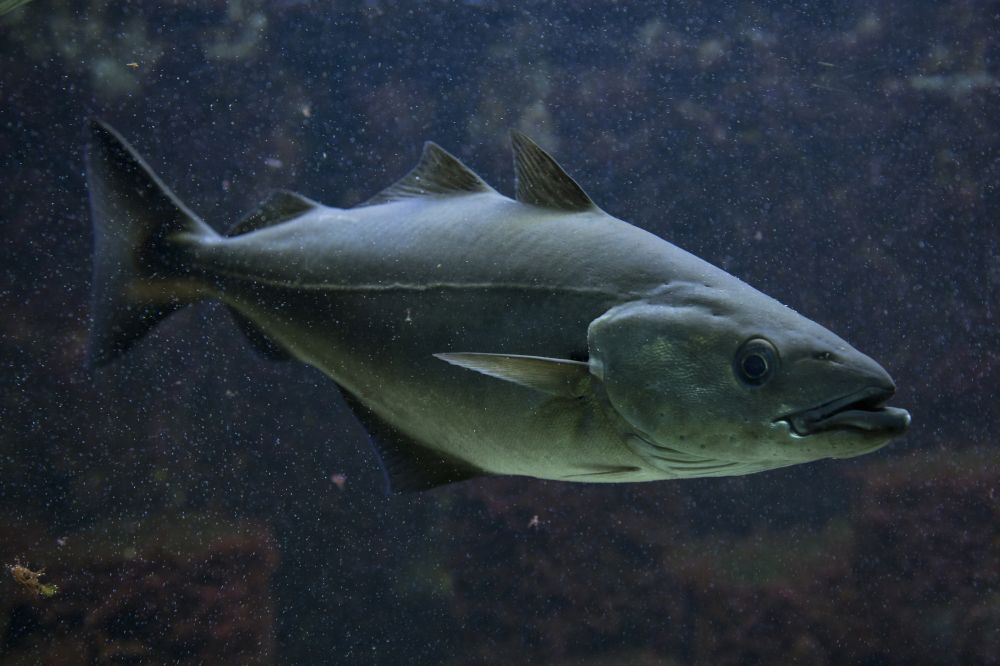
The Coalfish belongs to the Gadidae family. With a size of up to 1.30 m, the coalfish can weigh up to 10 kg. It has a life span of 8 to 10 years. The breeding period varies according to the location. The female lays up to 4 million eggs. It can be fished all year round but at a minimum catch size of 61 cm. Its body is fusiform and elongated, covered with small round scales. In profile, the lower jaw is slightly prominent. The back is greenish brown; the belly is silvery. The clear and almost straight lateral line is well marked. It extends along the entire length of its sides. There may also be a black spot at the base of the pectoral fins. The mouth is terminal. She's black on the inside. The fins are soft-raked. They are dark like the back of a fish, except for the lighter pelvic fins. The coalfish has 3 dorsal fins, the first being triangular, the others longer, and 2 anal fins. The pelvic fins are positioned well forward, under the head, and the caudal fin is a little concave. Young people may have a small barbel on their chin.
The Coalfish is a famous fish you can catch in Northleigh.The Weever fish
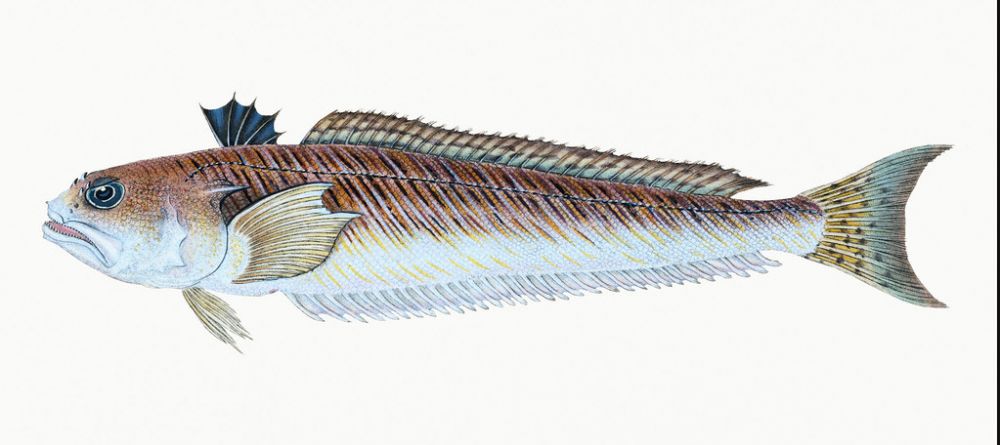
The Weever fish belongs to the Trachinidae family. The Weever fish form a family of perciform marine fish, the Trachinidae, which includes nine species. Their sizes vary from 15 cm to more than 50 cm depending on the species. The Nine species are: The Lesser weever, the Spotted weever, the Guinean weever, the Sailfin weever, the Trachinus cornutus, the Greater weever, the Striped weever, the Cape Verde weever and the Starry weever. It can be fished during the hot seasons. The Weever fish can be classified into two categories, on the one hand the small Vive which measures less than 15 cm, and the large Vive, measuring on average 2 to 30 cm and can reach 50 cm in length. The large weever differs from the small one in that it has four thorns in its orbits. The weever is always dangerous, in that it is endowed with erectile spines are the bite is very toxic, which can have long-term consequences in humans. The weever is yellow on the back, with a whitish belly and yellow or brown streaks. Accidents are much more frequent since the weever is often buried in the sand, so the risk is greater, as you may step on it and get stung.
The Weever fish is a famous fish you can catch in Northleigh.The Mullet fish
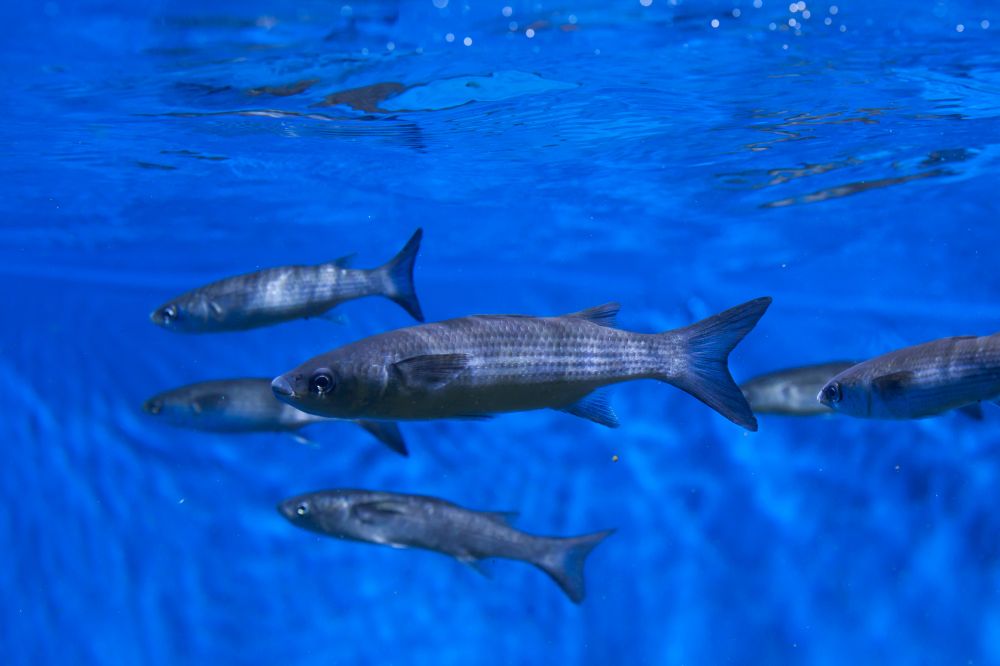
The Mullet fish belongs to the Mugilidae family. It can measure up to 75 cm and weigh 2.5 kg. A 16-year-old individual holds the observed longevity record. Breeding generally takes place from July to October. The female can lay up to 2.6 million eggs. It is fished from April to August. The mullet has an elongated body of about 35-50 cm or even 70 cm, with an oval cross-section and a robust appearance. Its color is generally silvery grey, bluish (sometimes more or less white, olive or brown), lightening on the sides and light belly. Sometimes grey longitudinal lines and golden reflections are present on the dorsal part. The lateral line is rarely visible. A small black spot is often present in the armpits of the pectoral muscles. The flattened head is wide, fat eyelids are well developed (but not always visible underwater because of their transparency) and protect the eyes near the snout. Its mouth has straight, dense and thin teeth, usually in several rows. The commissure ends below the posterior level of the nostril. Its upper lip is thin and smooth. It has two dorsal fins: the first with four spines and the second with 8-9 soft rays. The yellowish anal fin has 8 soft rays and 3 spines; pectoral fins have 16-19 rays; the pectoral axillary scale is well developed and about one-third the length of the fin. The ventral, anal and lower lobe of the caudal fins are sometimes yellow (but not necessarily yellow). The scales, arranged in lateral series (36-45), are cycloid (smooth
The Mullet fish is a famous fish you can catch in Northleigh.The Garfish
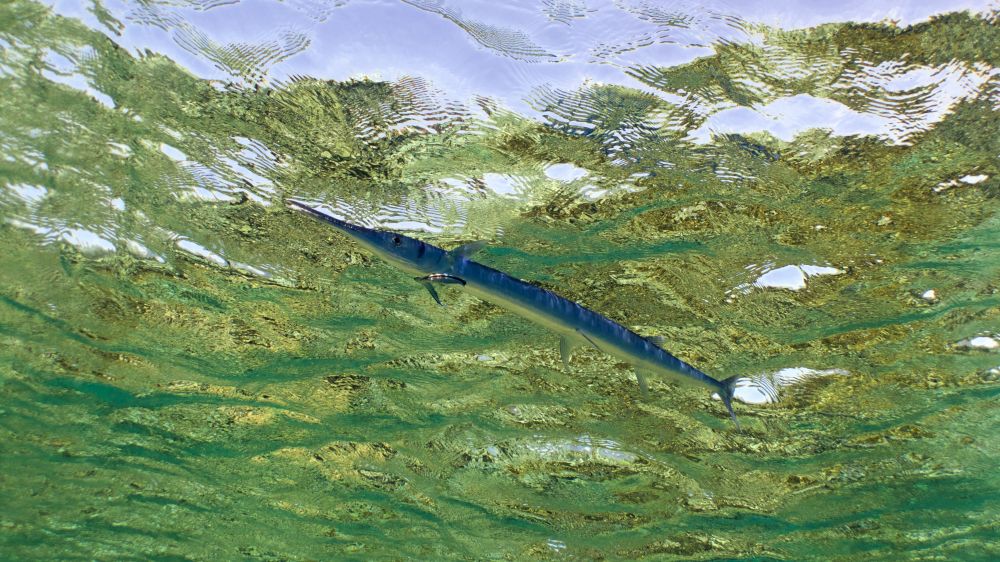
The Garfish belongs the Belonidae family. It measures from 30 cm to more than one meter and can weigh up to 5 kg, the average weight being around 400 g. It has a lifespan of about 10 years. It breeds from Mai to June. The female lays thousands of eggs. The Garfish is a fish with a very tapered body of oval cross-section. The head extends into a long beak formed by two thin jaws armed with sharp teeth. The lower jaw is slightly longer than the upper jaw. The nostrils are located in a depression in front of the eyes. The ventral fins are located approximately in the middle of the body, the caudal fin is very indented, the dorsal and anal fins are very far back, at the same level. The back of the dorsal fin is the same height as the back of the anal fin. The caudal peduncle has a strong hull. The very low lateral line is on the belly and not on the sides like other fish. The back is a dark blue-green, the sides are silvery, the belly white, the edges green.
The Garfish is a famous fish you can catch in Northleigh.The Flounder Fish
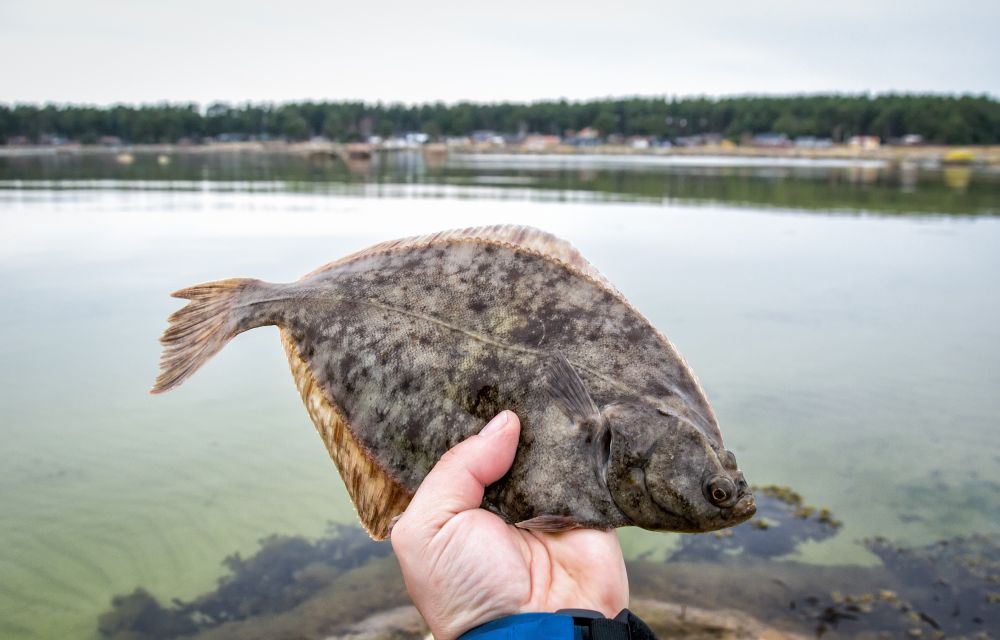
The Flounder Fish belongs to the Pleuronectidae family. It usually reaches a size of 50 cm; the maximum observed size is 60 cm for a weight of 1.5 kg. The maximum lifespan is estimated at 15 years. It reproduces in early spring. The female can lay up to 2 million eggs. The best time to fish it is in spring and autumn. The Flounder fish is a flatfish of general losanitary appearance, taking into account the triangular shape of the head and dorsal and anal fins. Both eyes are on the same side of the head, on the right side, for about 2/3 of the individuals. The mouth is small and terminal, with a slightly tapered snout. The oral commissure is located on the same line as the center of the eye. The lateral line barely curves towards the dorsal edge at the pectoral fins. It has a row of tubers in its front part. Similarly, the base of the dorsal and anal fins is highlighted by a line of tubers, which are clearly palpable. The anal fin has 35 to 46 soft rays. The oculate side has a variable coloring, from olive green to reddish brown, or grey, enhanced by dark green mottling, with small, dull and few orange spots. This helps to give it a "dirty" appearance. The blind side is white.
The Flounder Fish is a famous fish you can catch in Northleigh.Our fishing forecast of Northleigh indicates the best time to go fishing in this city.
Our fishing forecast of Northleigh indicates the best time to go fishing in this city.
Our fishing forecast of Northleigh indicates the best time to go fishing in this city.
